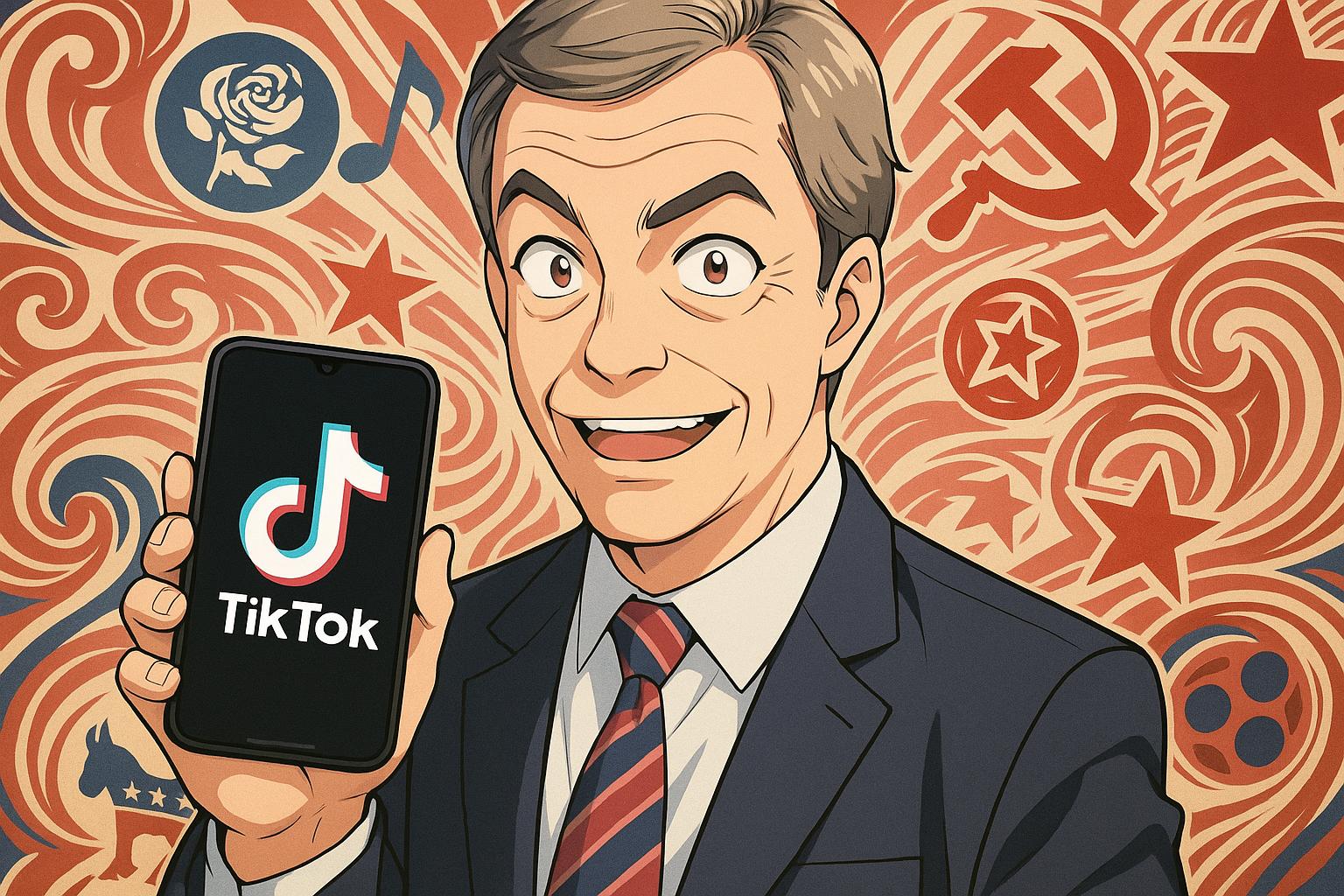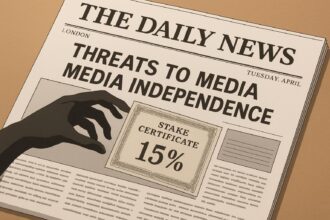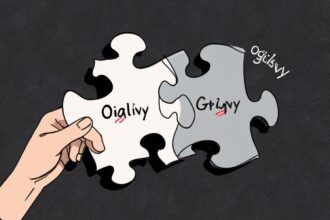Nigel Farage’s success on TikTok during the 2024 UK general election reveals a new dimension of political messaging, where entertainment and viral content blur the lines between humour and propaganda—drawing unsettling parallels with Lord Haw-Haw’s broadcasts in World War II.
The rise of Nigel Farage as a prominent figure on TikTok has sparked discourse about the intersection of entertainment and political messaging. His engagement with younger audiences presents a nuanced reflection on how trivial content can inadvertently become a conduit for political ideas. This phenomenon recalls historical examples of propaganda dissemination, particularly the broadcasts of William Joyce, infamously known as Lord Haw-Haw, during the Second World War.
Farage has successfully leveraged TikTok not merely as a platform for political discourse but as a stage for creative engagement that resonates with its predominantly young user base. His TikTok account notably outperformed other UK political figures during the 2024 general election campaign, drawing attention to his strategic use of humour and cultural references. According to analyses, Farage’s ability to create viral content and his emphasis on authenticity have positioned him as a master content creator within the realm of UK politics, paving the way for deeper engagement among first-time voters.
However, the implications of such a trend raise questions about the boundaries of political influence on social media. As the Financial Times notes, TikTok’s format often prioritises emotionally charged content over substantive political discourse. This shift toward simplicity and emotional appeal can distort public understanding of complex issues. Farage’s approach exemplifies this shift, where the lines between entertainment and serious political commentary blur, leading to a consumption of politics akin to light-hearted entertainment.
Drawing parallels between Farage and historical propagandists illustrates a broader concern regarding the impact of entertaining political content. During World War II, Lord Haw-Haw’s broadcasts attracted listeners not only for their comedic elements but also for the unsettling ideas they propagated. As scholars like Ruth and Henry Durant observed, audiences tuned in for amusement, only to find themselves gradually engaging with the underlying messages. This raises an intriguing question: can a playful approach to political messaging inadvertently cultivate a more significant, potentially dangerous, ideological engagement?
The evolution of content consumption in the digital age poses challenges that political figures must navigate. As Farage continues to dominate TikTok with his mix of entertainment and political commentary, the potential for misinformation and ideological framing becomes increasingly concerning. Without critical engagement, young viewers accustomed to digesting quick, digestible content might find themselves swayed by ideas that require deeper scrutiny.
In this landscape, the responsibility lies not only with politicians like Farage but also with consumers of political content. Encouraging critical thinking and skepticism among younger audiences is vital to counteract the potential for trivial content to morph into a persuasive, albeit misleading, political narrative. As we reflect on the parallels between past and present, it remains crucial for society to approach political messaging with both discernment and awareness.
Reference Map:
– Paragraph 1: [1], [5], [7]
– Paragraph 2: [2], [3]
– Paragraph 3: [4]
– Paragraph 4: [6]
– Paragraph 5: [1], [5]
Source: Noah Wire Services
- https://www.theguardian.com/politics/2025/may/14/nigel-farage-tiktok-and-lord-haw-haw – Please view link – unable to able to access data
- https://www.theguardian.com/politics/article/2024/jun/26/nigel-farage-outperforms-all-other-uk-parties-and-candidates-on-tiktok – An article from The Guardian detailing how Nigel Farage’s TikTok account outperformed all other UK parties and candidates during the 2024 general election campaign. It highlights Farage’s engagement strategies, including targeting younger voters and creating viral content, and compares his performance to that of other political figures on the platform.
- https://www.theguardian.com/commentisfree/article/2024/jul/02/nigel-farage-tiktok-stardom-reform-uk-leader-content-creator – A commentary piece from The Guardian analyzing Nigel Farage’s success on TikTok. The article discusses his use of humor and authenticity to connect with audiences, his prolific posting strategy, and how his content resonates with his fanbase, positioning him as a leading content creator in UK politics.
- https://www.ft.com/content/0d77abf2-1078-48a8-baec-7bb5cdad0388 – An article from the Financial Times examining the impact of political content on TikTok. It discusses how the platform’s format simplifies political debates, often favoring emotionally charged content over in-depth discussions, and how figures like Nigel Farage leverage this trend to engage younger voters.
- https://www.thedailybeast.com/lord-haw-haw-how-a-little-liar-sold-the-biggest-one/ – A piece from The Daily Beast exploring the history of ‘Lord Haw-Haw,’ the nickname for William Joyce, who broadcasted Nazi propaganda to the UK during World War II. The article delves into Joyce’s methods of exploiting public anxieties and spreading misinformation to undermine British morale.
- https://www.historylearningsite.co.uk/world-war-two/world-war-two-in-western-europe/the-phoney-war/lord-haw-haw/ – An article from the History Learning Site detailing the activities of William Joyce, known as ‘Lord Haw-Haw,’ during World War II. It covers his broadcasts aimed at demoralizing the British public, the content of his messages, and the public’s reaction to his propaganda.
- https://www.thetimesofisrael.com/the-unfortunate-odyssey-of-lord-haw-haw-the-nazis-wartime-voice-in-britain/ – An article from The Times of Israel discussing the role of William Joyce, known as ‘Lord Haw-Haw,’ as a Nazi propaganda broadcaster during World War II. It examines his methods of spreading misinformation and the impact of his broadcasts on the British public during the war.
Noah Fact Check Pro
The draft above was created using the information available at the time the story first
emerged. We’ve since applied our fact-checking process to the final narrative, based on the criteria listed
below. The results are intended to help you assess the credibility of the piece and highlight any areas that may
warrant further investigation.
Freshness check
Score:
8
Notes:
The piece is recent, published in May 2025, and references current events like Nigel Farage’s TikTok presence during the 2024 UK general election. However, the comparisons to historical figures like Lord Haw-Haw are not time-sensitive, which might suggest a blend of contemporary and timeless themes.
Quotes check
Score:
6
Notes:
There are no direct quotes in the narrative. The references to historical figures and scholarly opinions are not direct quotations but rather thematic discussions. This makes it difficult to verify original sources or dates for specific quotes.
Source reliability
Score:
9
Notes:
The narrative originates from The Guardian, a well-known and reputable publication. The references to other sources like the Financial Times enhance credibility.
Plausability check
Score:
7
Notes:
The claims about Nigel Farage’s TikTok presence and its impact on political discourse are plausible, given his historical influence and the current digital landscape. However, the parallels drawn with Lord Haw-Haw might be interpreted differently depending on perspective.
Overall assessment
Verdict (FAIL, OPEN, PASS): PASS
Confidence (LOW, MEDIUM, HIGH): HIGH
Summary:
The narrative is generally reliable, originating from a reputable source and discussing contemporary issues. The lack of direct quotes and the blend of historical and modern themes contribute to its credibility. The plausibility of its claims is reasonable, though the historical analogies might be subject to interpretation.













